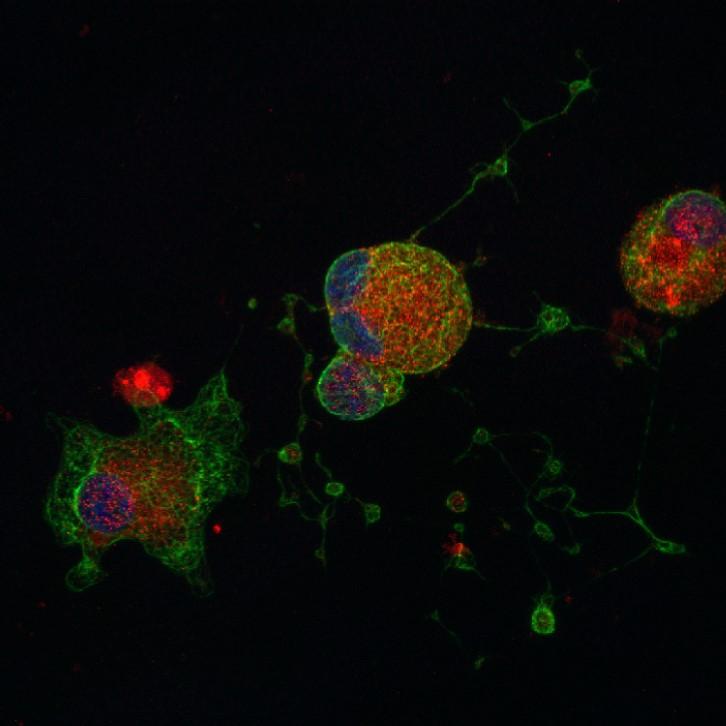
Submitted by Administrator on Mon, 14/11/2016 - 15:19
Researchers from the Stem Cell Institute (Ghevaert and Pedersen Groups), NHS Blood and Transplant and the University of Cambridge have developed an innovative method of producing the precursors of platelets (megakaryocytes) and platelets themselves from human stem cells. The study, published in Nature Communications, was supported by a grant from the National Institute for Health Research and the Leukaemia and Lymphoma Society.
Platelets, whose primary function is to stop bleeding (haemorrhage) by forming a clot at the site of an injury to a blood vessel, are produced by megakaryocytes in the bone marrow. In the future, this research could lead to the manufacturing of platelets for human transfusion.
In future, manufactured platelets could provide an advanced transfusion product that would potentially be suitable for all patients regardless of their blood type, carry no risk of transmitting infection and could be more effective than platelets collected from blood.
This research represents a critical step towards the laboratory production of platelets by allowing large scale production of the precursor cells - the megakaryocytes – with unprecedented efficiency. The challenge now is to improve the laboratory culture systems to enable the next step, the production of platelets. Cedric Ghevaert’s team is also leading research on customised bio-reactors which are showing high potential for the scaling-up of platelet manufacture.
Read more on the NHS Blood and Transfusion website
The story has also been covered by Radio 4, Radio 5, BBC News, the Daily Mail, Medical News Today, The Mirror and Cambridge TV.
Publication details:
Moreau T, Evans AL, Vasquez L, Tijssen MR, Yan Y, Trotter MW, Howard D, Colzani M, Arumugam M, Wu WH, Dalby A, Lampela R, Bouet G, Hobbs CM, Pask DC, Payne H, Ponomaryov T, Brill A, Soranzo N, Ouwehand WH, Pedersen RA, Ghevaert C. Large scale production of megakaryocytes from human pluripotent stem cells by chemically defined forward programming. Nature Communications, Volume:7,Article number:11208 DOI:doi:10.1038/ncomms11208

